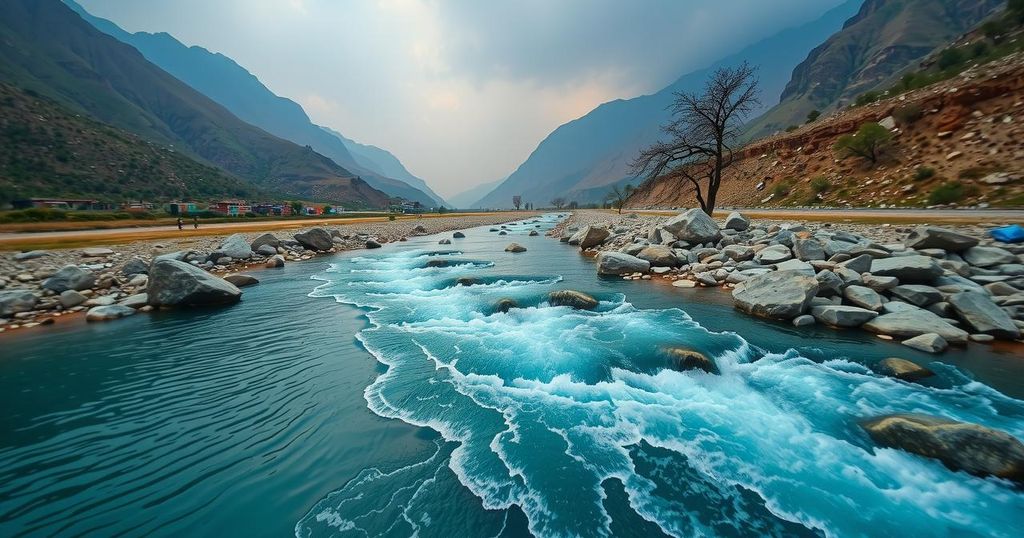Uzbekistan’s envoy stated that Afghanistan has the right to utilize water from the Amu Darya River, but emphasized the need for established quotas due to the river’s diminishing flow. A joint commission has been formed to discuss the Qosh Tepa Canal, an infrastructure project projected to divert significant water volumes from the river. Concerns have been raised regarding its potential impact on regional water management.
In a recent statement, Ismatullah Irgashev, Uzbekistan’s special representative for Afghanistan, emphasized that the people of Afghanistan possess the right to utilize the water from the Amu Darya River. However, he pointed out the need for clarity regarding how much water each country would be entitled to use, especially considering the river’s decreasing water levels. Irgashev also referenced Uzbekistan’s initiative to forge a collaborative commission with Afghanistan to oversee the development of the Qosh Tepa Canal, a significant infrastructure project designed to channel water from the Amu River through various provinces of Afghanistan. The anticipated Qosh Tepa Canal will extend approximately 285 kilometers, with specifications of a width of 100 meters and a depth of 8.5 meters. It has been estimated that the canal will divert about 10 cubic kilometers of water annually from the Amu River, representing roughly 20% of the river’s entire volume. This prospect has raised concerns among Uzbekistan’s authorities regarding potential changes to the water distribution in Central Asia. However, representatives from the Islamic Emirate of Afghanistan (IEA) have reassured stakeholders that Uzbekistan should not suffer adverse impacts from the canal’s construction.
The ongoing dialogue between Afghanistan and Uzbekistan regarding water rights stems from the critical nature of the Amu Darya River for both nations. The river serves as a vital water source in the region, thus necessitating careful management and coordination between the countries that share it. The Qosh Tepa Canal is viewed as a key project by Afghanistan to enhance its irrigation capabilities and agricultural output, while Uzbekistan remains vigilant about maintaining a sustainable balance in water usage amidst concerns over declining river levels. This consultation and cooperation are paramount in fostering regional stability and promoting shared resources.
In summary, Uzbekistan acknowledges Afghanistan’s rights to the Amu River, emphasizing the necessity for an agreement on equitable water allocation amidst concerns over the river’s diminishing flow. The Qosh Tepa Canal project stands as a pivotal development that requires both nations to collaborate closely to ensure it does not disrupt the regional water balance. Uzbekistan’s commitment to open dialogue reflects a proactive approach to managing shared resources and maintaining harmonious relations with Afghanistan.
Original Source: www.ariananews.af







